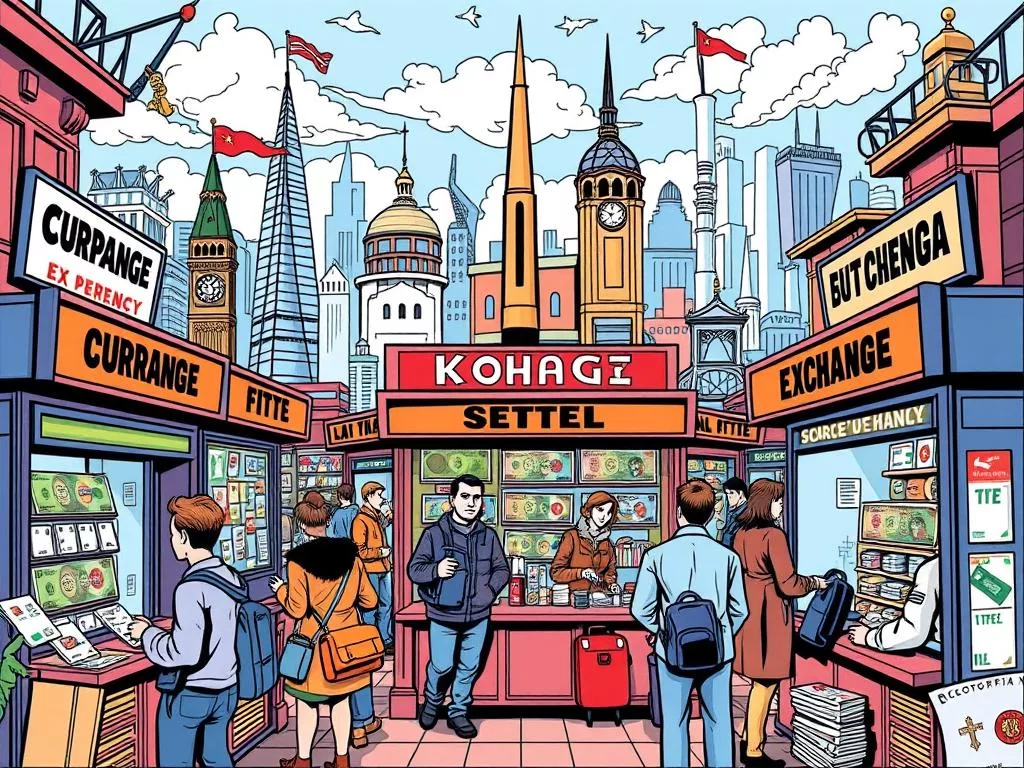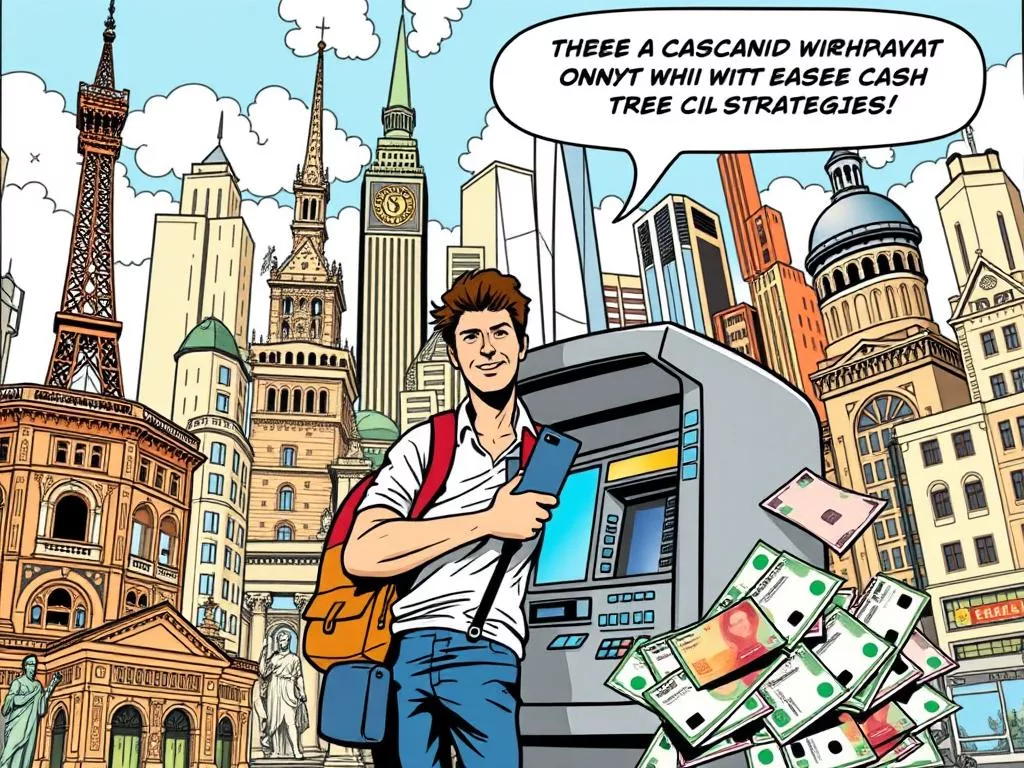Traveling abroad often means you need cash. But finding the best way to get it can save you a lot. The secret is knowing about different currency rates and fees at international ATMs.
Banks and credit unions usually offer the best rates because they charge less than tourist exchange places. For example, Citibank has over 4,600 branches and ATMs worldwide. This makes them a great choice for travelers looking to save money.
Using an ATM from your home bank can make things easier. Many banks will even cover the fees for international ATM use. Also, using a rewards credit card can get you the best rates and earn travel points.
Before you go, check out these travel money tips to avoid high fees at airports or tourist spots. These places often charge up to 10% more than the market rate.
For more detailed advice on managing cash while traveling, see this comprehensive resource. Planning ahead can make your trip better by saving money on cash abroad.
Understanding Currency Exchange Options
Travelers need to look into different ways to exchange currency when abroad. Banks and credit unions often have better rates and clear fees compared to airport kiosks. They also let you order currency before you leave, which can be picked up or sent home.
Getting cash from ATMs is another good option. ATMs usually have rates close to what banks offer. But, watch out for fees, which can be $1 to $5 or 3% of the amount. For example, Bank of America charges $5 plus 3% for withdrawals abroad.
Be careful with ATMs not in global networks, as they might charge more. Knowing the local currency and watching exchange rates can help you choose the best time to exchange. Some people use prepaid travel cards to avoid rate changes.
Avoid using dynamic currency conversion (DCC) to avoid extra fees. Try to withdraw as much cash as you can at once to cut down on ATM fees. Banks and credit unions are usually the safest for good rates and fewer extra charges. Using smart strategies can help you manage your money well while exploring new places.

Guide to Cheapest Way to Get Cash Abroad
Traveling internationally can be expensive, but getting cash wisely can help. Using ATMs linked to big banks usually gives you the best rates. These ATMs might charge $2.00 to $5.00 per withdrawal. Also, watch out for extra fees from banks or ATM networks, as they can add up fast.
Using travel rewards cards without foreign transaction fees is a smart move. This way, you save money on extra costs during your trip. It’s also good to carry some local currency for small purchases. This helps you negotiate prices better without relying on cards.

Before you leave, check your bank’s partnerships with Global ATM Alliance. This can help you avoid fees in some places. Companies like Charles Schwab also offer accounts that refund ATM fees, saving you money over time.
The table below shows typical fees and comparisons for cash withdrawal and currency exchange:
| Method | Average Fees | Pros | Cons |
|---|---|---|---|
| International ATMs | $2.00 – $5.00 | Best rates on cash withdrawal | Possible extra fees from networks |
| Travel Rewards Cards | 0% foreign transaction fees | Enhanced savings on purchases | Limited acceptance in some areas |
| Currency Exchange Services | Average 2.15% – 16.60% | Immediate cash availability | Higher overall costs |
| Buying Foreign Currency in Advance | Fixed fees + commission | Fixed rates can aid budgeting | Potential for worse exchange rates |
Traveling smart means making smart choices about cash and currency. Understanding these can help you save money on your trip.
When to Avoid Currency Exchange Locations
Travelers often face a dilemma when it comes to exchanging money. Airport kiosks are not the best choice because they charge high fees. These fees cover their costs, leading to bad exchange rates. This means you might get less cash than you expect.
Many tourist centers also have high fees. These rates are not good for travelers.
Looking for better options can help. Using ATMs from your bank can save you money. Try to withdraw a lot at once to lower your costs.
Online services like Wise can save you a lot. They often have no or low fees. Check your bank and credit card for good deals too.
| Location Type | Typical Exchange Fees | Recommended? |
|---|---|---|
| Airport Kiosks | High (often >3%) | No |
| Tourist Centers | High (often >3%) | No |
| Bank ATMs | Low (around 1-3%) | Yes, if in-network |
| Online Exchange Services | Low to none | Yes |
| Local Banks/Credit Unions | Competitive rates (check ahead) | Yes |
Best Practices for Managing Cash While Traveling
Managing cash while traveling is key for your safety and convenience. Begin by setting a budget for your daily costs. Make sure you stick to it to avoid overspending. Use a debit or credit card without foreign transaction fees, like the First Direct debit card, for safe and cost-effective spending abroad.
It’s also vital to have emergency funds ready but safe. Turn on transaction alerts on your cards to catch any odd activity fast. The Wise card is great for this, as it lets you withdraw money without fees and converts currency fairly. This is super useful in emergencies, keeping you covered when unexpected things happen.
To reduce risks of losing cash, keep your bank’s contact info handy. Being ready for lost or stolen cards can really help. Knowing local tipping rules and using local currency can also save you money. For more tips on managing cash while traveling, check out this guide on travel budgeting.

